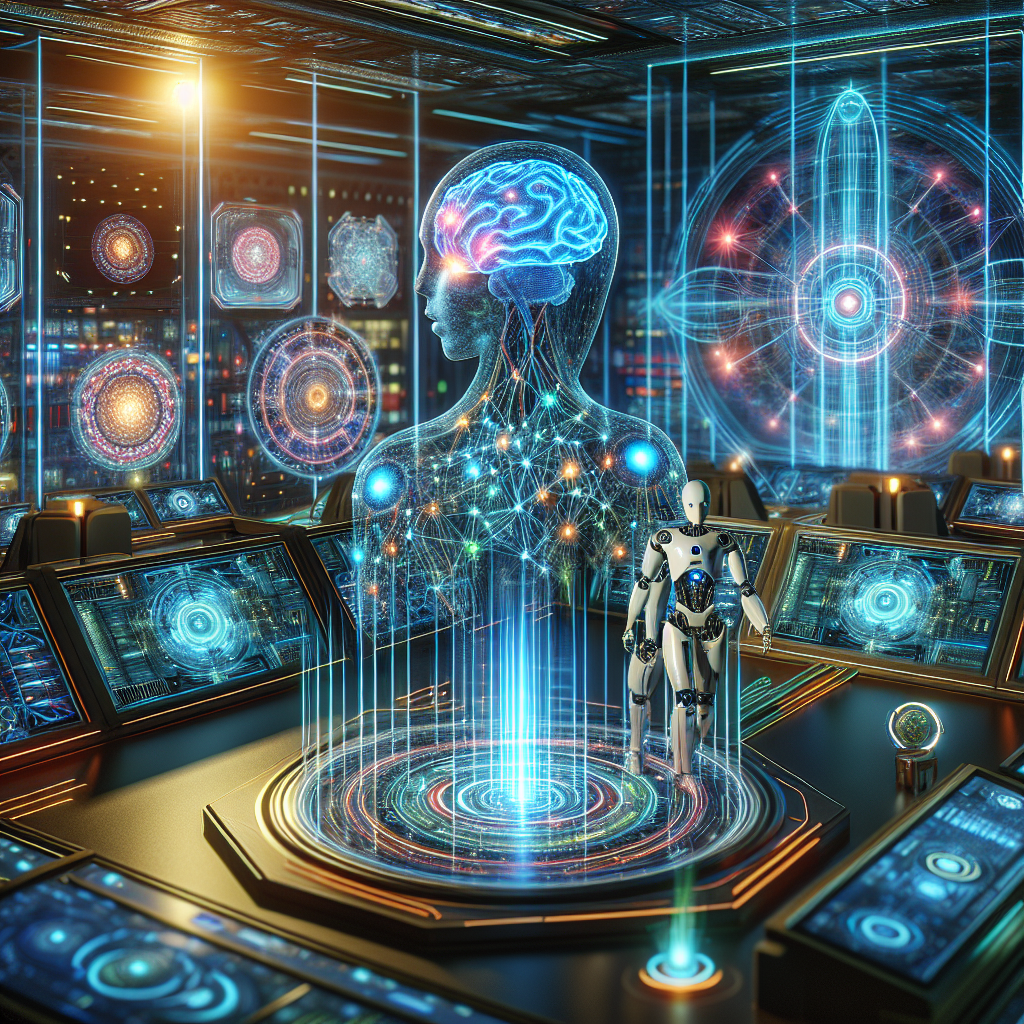Unpacking the AI Revolution: This Week's Highlights and Beyond
The digital landscape is ablaze with rapid developments, and this week, AI has fired several shots that will undoubtedly echo through the corridors of technology and beyond. As we surf the crest of this info-rich tsunami, it's essential to note that while this appears to be a standard week for AI, what lies ahead could redefine 'standard' in the AI chronicles.
AlphaFold 3: A New Dawn in Molecular Modeling
The monumental unveiling of Google DeepMind’s AlphaFold 3 may have slipped under the mainstream radar, but its impact is astronomical. Building upon its predecessors, AlphaFold 3’s prowess in predicting the interactions of proteins, DNA, RNA, and lians paves an unprecedented path for scientific and medical breakthroughs. The implications are profound, potentially accelerating the discovery of new drugs and vaccines, and deepening our understanding of biological mechanisms. This is not just an incremental step; it's a giant leap that may well lead to Nobel laureates.
For a detailed dive into the implications of machine learning in drug discovery, this Nature article provides a comprehensive backdrop.
Microsoft and AI: A Strategic Chess Move
Switching gears to corporate strategy, Microsoft’s narrative in the AI saga is equally riveting. With Mustafa Suleyman at the helm of Microsoft AI, the creation of MAI1, a mammoth model boasting 500 billion parameters, signifies Microsoft's strategic diversification. While historically aligned with OpenAI, this move could hint at an intriguing plan B, preparing Microsoft for a future where its AI trajectory must diverge from OpenAI due to contractual shifts.
The interplay between collaboration and independent innovation underscores a crucial strategy: be versatile, be prepared. Microsoft is not just participating in the AI revolution; it's gearing up to potentially spearhead it, regardless of external partnerships.
The Stack Overflow Saga: Community and Controversy
The partnership between Stack Overflow and OpenAI could have been a textbook win-win; however, it has sparked contention within the Stack Overflow community. The agreement allows OpenAI to harness a colossal database of coding queries and solutions, enriching its models, notably the GP4. This collaboration should theoretically elevate the coding prowess of AI tools to unprecedented heights.
However, the community backlash over data rights and the perceived commodification of voluntary contributions highlight a growing dialogue on ethics in AI. As users begin to understand the implications of their contributions being used in ways they didn't initially consent to, platforms will need to navigate these waters with greater transparency and respect for user agency.
AI and Art: The Creative Frontier
On the more visually creative side of things, AI art continues to dazzle and provoke thought. Companies like Kaa AI are pushing boundaries by introducing capabilities to blend images and create mesmerizing videos, a tool that screams potential for industries like music video production and digital advertising. This artistic endeavor is not just about creating new visuals but also about redefining the narrative and engagement capacity of digital media.
For those intrigued by the intersection of AI and art, exploring platforms like DeepArt can offer a firsthand experience of AI’s creative capabilities.
The Search for AI Dominance In Web Engines
The rumor mill is abuzz with OpenAI potentially announcing its search engine, setting the stage for a formidable face-off with tech titans like Google. This move is not just about diversifying product offerings; it's a strategic play in the data dominion wars. With each query processed, AI models learn more, becoming more sophisticated and integral to our digital interactions.
Conclusion: The Broad Spectrum of AI Applications
From molecular science to artistic expression and strategic corporate maneuvers, AI is not just a tool but a transformational force. As we peer into the near future, where AlphaFold 3 might revolutionize medicine and Microsoft may redefine its AI destiny, the landscape is anything but predictable. The partnership challenges faced by Stack Overflow and OpenAI underscore the complex interplay of innovation, ethics, and community engagement in the age of AI.
As we ride this wave, one thing is certain: the AI revolution is not just coming; it's here. And it's redefining paradigms across every touchpoint of society and commerce. For those looking to stay updated or dive deeper into the AI odyssey, sources like MIT Technology Review provide extensive coverage and insightful analyses.
Navigating this revolution requires a keen eye on both the macro shifts and the micro dynamics. As AI continues to evolve, so too must our strategies for engagement, ethics, and innovation. This is not just a journey of technological advancement but a pivotal chapter in human ingenuity and adaptation.
Related News
- The Whirling World of AI: A Zesty Deep Dive Into the Latest Updates
- The Latest in AI: Innovations, Developments, and Industry Trends
- Exploring the Latest Frontiers in AI: A Comprehensive Analysis
- The Rapid Evolution of AI: Breakthroughs and Trends of the Week
- A Brave New World: The AI Revolution Unfolds
